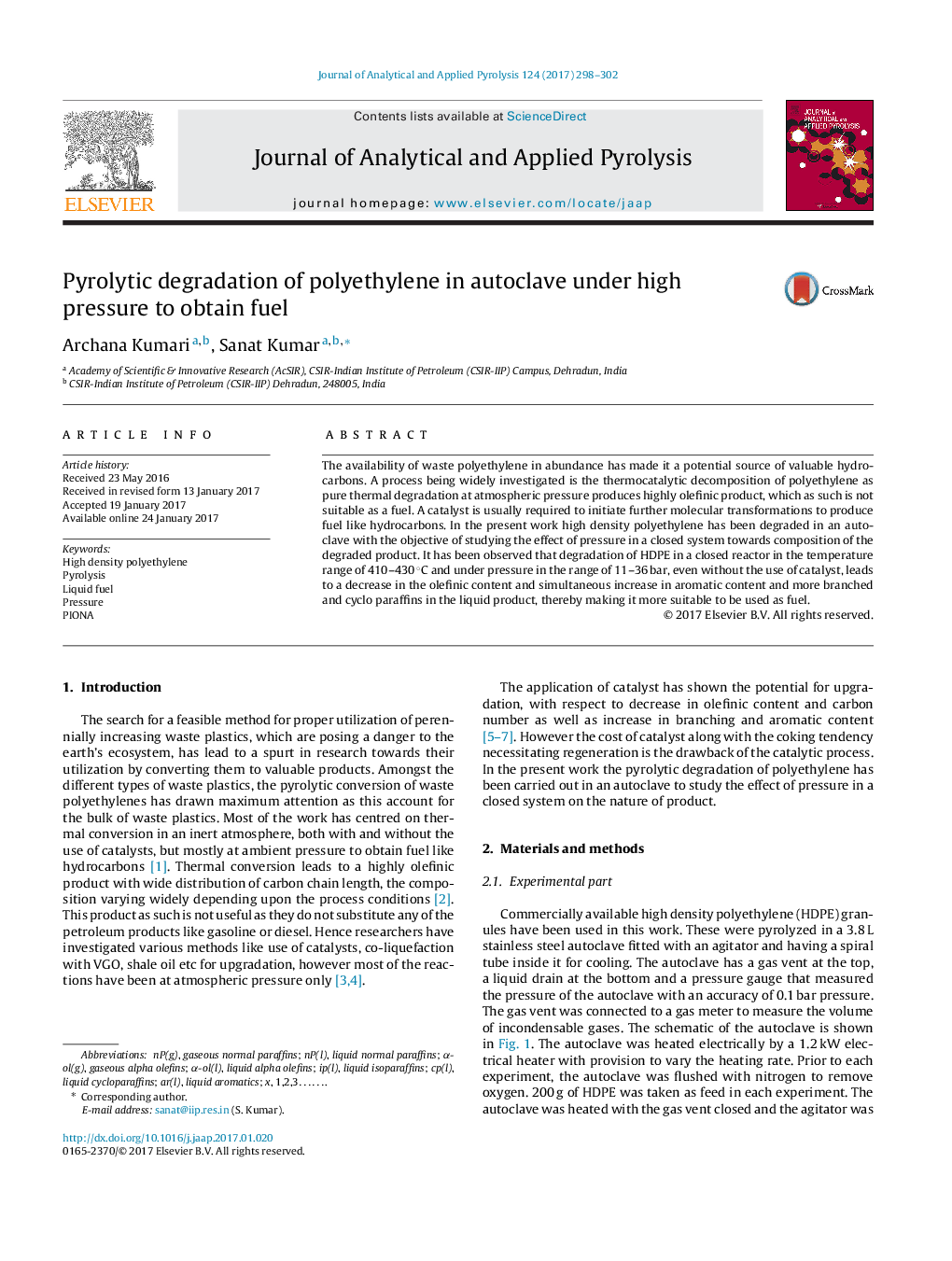| کد مقاله | کد نشریه | سال انتشار | مقاله انگلیسی | نسخه تمام متن |
|---|---|---|---|---|
| 5134596 | 1492953 | 2017 | 5 صفحه PDF | دانلود رایگان |

- Degradation of polyethylene in a closed system without catalyst.
- Effect of pressure on the composition of degraded products.
- Molecular transformations similar to those obtained by catalytic conversions.
- Olefins and normal paraffins transformed to aromatics and iso, cyclo paraffins respectively.
- Liquid product suitable as liquid fuel.
The availability of waste polyethylene in abundance has made it a potential source of valuable hydrocarbons. A process being widely investigated is the thermocatalytic decomposition of polyethylene as pure thermal degradation at atmospheric pressure produces highly olefinic product, which as such is not suitable as a fuel. A catalyst is usually required to initiate further molecular transformations to produce fuel like hydrocarbons. In the present work high density polyethylene has been degraded in an autoclave with the objective of studying the effect of pressure in a closed system towards composition of the degraded product. It has been observed that degradation of HDPE in a closed reactor in the temperature range of 410-430 °C and under pressure in the range of 11-36 bar, even without the use of catalyst, leads to a decrease in the olefinic content and simultaneous increase in aromatic content and more branched and cyclo paraffins in the liquid product, thereby making it more suitable to be used as fuel.
Journal: Journal of Analytical and Applied Pyrolysis - Volume 124, March 2017, Pages 298-302